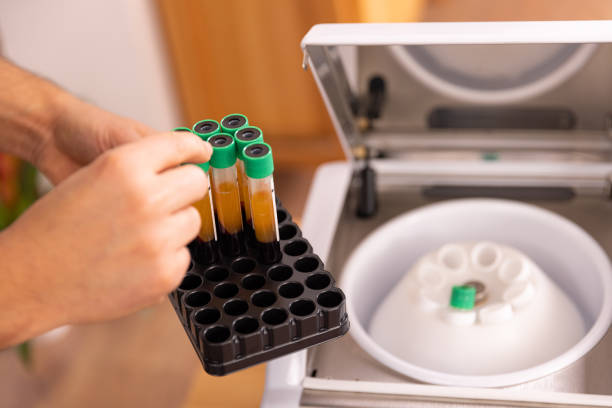
Benefits and Risks of Testosterone Therapy: A Comprehensive Guide.
Posted by on 2024-01-05
Testosterone therapy, a treatment primarily used to address the issues of low testosterone in men, has become a significant topic of discussion in recent years. It holds promise for many people suffering from specific health conditions and has life-altering benefits when administered appropriately. Still, it is essential to understand that while beneficial, testosterone therapy also harbors certain risks.
The benefits of testosterone therapy are diverse and plentiful. Primarily, it is utilized to counteract hypogonadism - a condition where the body fails to produce adequate levels of testosterone due to problems with the testicles or pituitary gland controlling them. Symptoms include depression, fatigue, irritability, decreased sex drive, difficulty concentrating, and weight gain.
When testosterone levels are restored through therapy, patients often experience a dramatic improvement in these symptoms. Their mood elevates; they feel more energetic and observe an increased libido. Furthermore, this hormone replacement can enhance cognitive abilities and memory function.
In addition to battling hypogonadism symptoms, testosterone therapy can help maintain bone density and may aid muscle mass growth – both crucial for overall physical strength and balance which can prevent frailty in older age.
While these benefits might make testosterone therapy seem like a miracle cure-all solution - it is not without its potential pitfalls.
Various studies have linked prolonged use of this treatment with an increased likelihood of developing cardiovascular diseases such as heart attacks or strokes - especially among older men with pre-existing heart conditions. There's also evidence suggesting that it could lead to sleep apnea – a serious sleep disorder characterized by pauses in breathing during sleep.
Furthermore, there's an associated risk with prostate health; some research indicates that high levels of testosterone could stimulate rapid growth of prostate cancer cells if present. Also noted are side effects such as acne breakouts and breast enlargement due to hormonal imbalance caused by excessive external supply of testosterone.
Moreover, fertility concerns have been raised since long-term usage may shrink the testicles and decrease sperm production, causing potential difficulties for those wishing to conceive.
In conclusion, testosterone therapy offers transformative benefits to those grappling with low testosterone levels or hypogonadism. It can provide improvements in mood, cognition, sexual function, body composition and overall quality of life. However, it’s crucial to be aware of the potential risks associated with this treatment - including cardiovascular disease, sleep apnea, prostate health issues and fertility concerns.
Therefore, anyone considering this therapy should have an open discussion with their healthcare provider about these benefits and risks. This will help ensure that the patient makes a fully informed decision that prioritizes their wellbeing above all else.
The benefits of testosterone therapy are diverse and plentiful. Primarily, it is utilized to counteract hypogonadism - a condition where the body fails to produce adequate levels of testosterone due to problems with the testicles or pituitary gland controlling them. Symptoms include depression, fatigue, irritability, decreased sex drive, difficulty concentrating, and weight gain.
When testosterone levels are restored through therapy, patients often experience a dramatic improvement in these symptoms. Their mood elevates; they feel more energetic and observe an increased libido. Furthermore, this hormone replacement can enhance cognitive abilities and memory function.
In addition to battling hypogonadism symptoms, testosterone therapy can help maintain bone density and may aid muscle mass growth – both crucial for overall physical strength and balance which can prevent frailty in older age.
While these benefits might make testosterone therapy seem like a miracle cure-all solution - it is not without its potential pitfalls.
Various studies have linked prolonged use of this treatment with an increased likelihood of developing cardiovascular diseases such as heart attacks or strokes - especially among older men with pre-existing heart conditions. There's also evidence suggesting that it could lead to sleep apnea – a serious sleep disorder characterized by pauses in breathing during sleep.
Furthermore, there's an associated risk with prostate health; some research indicates that high levels of testosterone could stimulate rapid growth of prostate cancer cells if present. Also noted are side effects such as acne breakouts and breast enlargement due to hormonal imbalance caused by excessive external supply of testosterone.
Moreover, fertility concerns have been raised since long-term usage may shrink the testicles and decrease sperm production, causing potential difficulties for those wishing to conceive.
In conclusion, testosterone therapy offers transformative benefits to those grappling with low testosterone levels or hypogonadism. It can provide improvements in mood, cognition, sexual function, body composition and overall quality of life. However, it’s crucial to be aware of the potential risks associated with this treatment - including cardiovascular disease, sleep apnea, prostate health issues and fertility concerns.
Therefore, anyone considering this therapy should have an open discussion with their healthcare provider about these benefits and risks. This will help ensure that the patient makes a fully informed decision that prioritizes their wellbeing above all else.